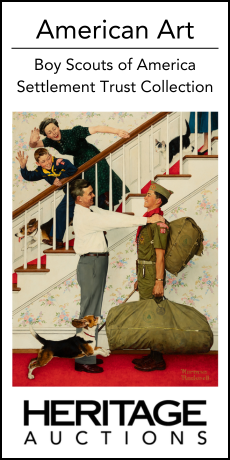
BY MILOS STEHLIK
The Cannes Film Festival! My thirtieth year of coming here—what’s changed since last year? The French have discovered “Happy Hour.” Being the generous people they are, they stretched the happy hour into “hours.”

Happy Hours.

Marche de Forville.
My favorite part of Cannes is actually the Marche de Forville. Six days a week, the freshest produce—olives, cheeses, fish, meats, fruits—which actually have a taste, not having been refrigerated for weeks.
This year’s festival has a great poster: Jean-Paul Belmondo and Anna Karina from Jean-Luc Godard’s film Pierrot le Fou. And the 86-year-old Godard has a new film in the Cannes Festival competition this year, Image and Word. I am going to see it in an hour.

Jean-Paul Belmondo and Anna Karina.

Lines and more lines.
Ready for some Cannes action? It’s more likely to involve standing in long lines and going through security. Every movie is like going to the airport.
The opening night film, Everybody Wins, was directed by Asghar Farhadi, the Iranian filmmaker who won an Oscar for A Separation. His new film, shot entirely in Spain, stars Penelope Cruz and Javier Bardem. A complicated story of family secrets, which involves a kidnapped child, it sinks from an over-complicated and ultimately tedious plot, and Penelope Cruz’s acting (she manages to be both long-suffering and beautiful at the same time), while Javier Bardem circles around her like a falling star.
Cannes is about fashion. Designers like Christian Dior stage shows around the Cannes Festival to show off parts of their collections, capitalizing on star presence at the festival. The beautiful dresses are not exactly perfect for sitting in a movie theatre, and so the actors go up the red carpet and then vanish out the stage exit.
Pawel Pawlikowski, the talented Polish filmmaker who also made films in the U.K., and won the Oscar for Ida, is here in the Cannes competition with a new film, Cold War. This tragic love story, beautifully shot in black and white, centers on a young sassy singer-dancer and her music teacher at a Communist-era folk singing and dancing school, who fall for each other, only to be separated by the Iron Curtain and ideology.

Cold War.
The Un Certain Regard section of the festival, usually reserved for younger, more adventurous filmmakers, kicks off with Donbass, the new film by Ukrainian filmmaker Sergei Loznitsa, who shifts between making fiction films and documentaries. His new film consists of episodic stories in the borderlands of the Ukraine where warring pro-Ukrainian and Russian forces fight for dominance and survival. Absurdist, realistic, and relentless, it feels like a piece of history.

Donbass.
A film you will hear much more about, the Swedish Border qualifies as the weirdest film of the festival so far. A customs border guard with an exceptional sense of smell and amazing intuition turns out to be a hermaphroditic “troll” who meets her mate in a plot filled with twists, sex scenes in moss-overgrown forests, and the foiling of a child pornography ring.
Yes, Cannes is filled with restaurants and the public to fill them, with prices to match. Yet there is so little time between screenings that the closest, most convenient sandwich is often the best option.

The perfect spot for a quick bite.

Calm before the storm.
The red carpet, rather empty, but not for long, at 7:45 a.m. The first screening of the day is at 8:30 a.m.
The first American film in the 2018 Cannes competition: Spike Lee, who still feels he was cheated out of the Palme d’Or when he screened his Do the Right Thing at Cannes, finally returns with BlacKkKlansman, the story of a Colorado African-American police officer who infiltrates the KKK. With John David Washington and Adam Driver, the film is an indictment of pervasive racism, but directed with a sledgehammer.
Lars von Trier, banned from the Cannes Festival for his anti-Semitic comments at a press conference for his film The Anti-Christ, returns in an out-of-competition screening of his The House That Jack Built, a psychotic descent into violence in the two-and-a-half-hour portrait of a serial killer. Half of the audience reportedly left the theatre during the film’s first screening, and as I was leaving the Festival Palais, I saw firemen carrying a stretcher into the theatre—ostensibly for someone in the audience.
A winner: Lazzaro felice (Happy as Lazzaro), an Italian film directed by Alice Rohrwacher, is filled with magical realism. This is the story of a community of peasants held in feudal servitude to a cynical, twisted Marchesa. Lazzaro, the saintly good character always willing to do everything for everyone, is the “holy fool” who unmasks the hypocrisy and evil that civilization brings.
The top critical runner here so far: Shoplifters, a feature by Japanese filmmaker Hirokazu Kore-Eda. The story of a family living on the margins, surviving through small scams and shoplifting, who kidnap and brings up an abused young girl, Shoplifters is filled with warmth and goodness.
Watch Classic Chicago this week for photos on the recent Facets Screen Gems Gala, starring some of Chicago’s most glamorous and creative people. Milos Stehlik is the founder of Facets. For further information. go to facets.org.






